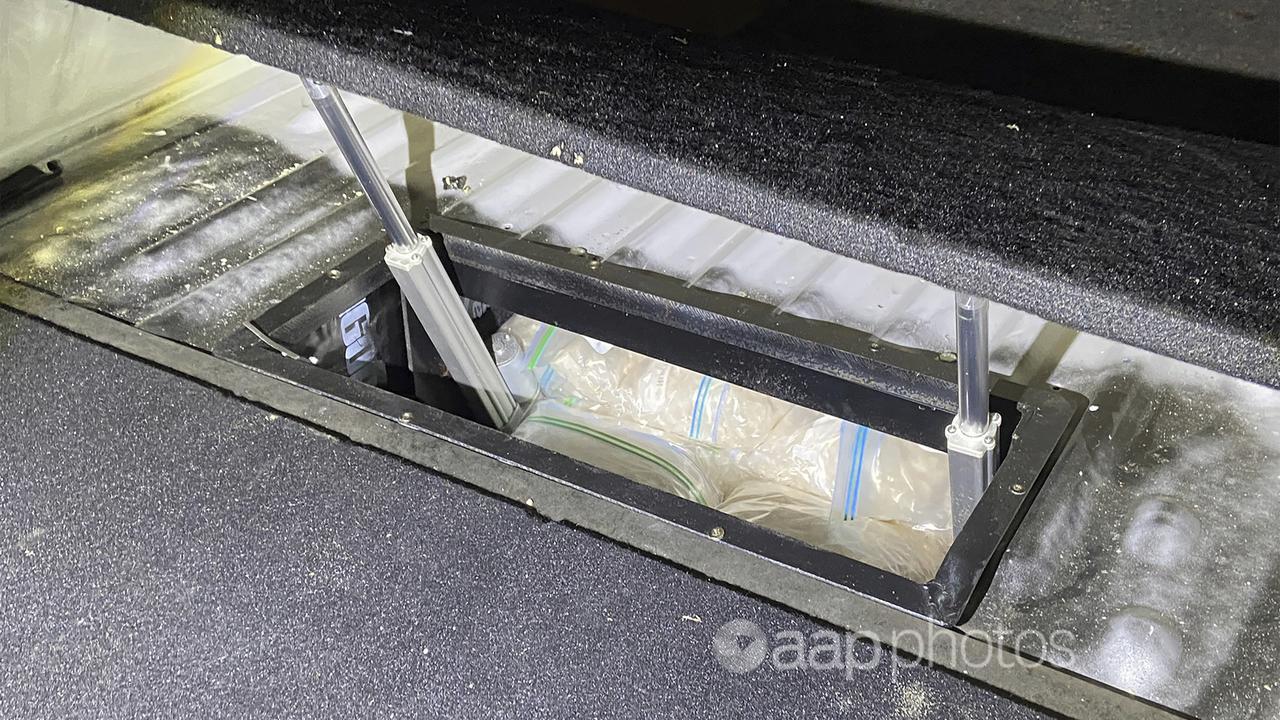The accused creator of a secret app allegedly used by organised crime networks in Australia and overseas to plot murders and drug deals has been living with his parents in a nondescript suburban Sydney house.
Jay Je Yoon Jung was among dozens of people taken into custody following days of raids targeting users and suppliers of the Ghost app, which police compromised to allegedly uncover and thwart a raft of criminal acts.
The bulk of the arrests were in NSW, but alleged criminals in Victoria, Western Australia, South Australia and the ACT were caught in the net.
Some 700 Australian Federal Police members were involved in the operation, which ran alongside an international task force targeting offshore links.
Thirty-eight people were arrested across the nation, with some charged months earlier facing further allegations from fresh evidence gathered through the encrypted platform.
The raids, which stemmed from a tip-off from French authorities in 2021, took down the global encrypted communications network, investigators said.
Jung, who police allege created and maintained the encrypted network, has been charged with numerous offences, including supporting a criminal organisation and dealing with the suspected proceeds of crime.
He is also accused of subscribing to cryptocurrency wallets using fake identities and not complying with evidence access orders.
The 32-year-old did not apply for bail in court on Wednesday and will remain in custody before the case returns in November.

Jung allegedly distributed modified smartphones for about $2350, including a six-month subscription to the encrypted network.
The deal allegedly included regular software updates, which ended up being the network’s downfall.
“We infected the devices, enabling us to access the content,” AFP deputy commissioner Ian McCartney told reporters on Wednesday.
Jung lived with his parents and did not have a criminal history, police said.
AFP Assistant Commissioner Kirsty Schofield said officers had to act quickly to prevent Jung wiping the network before he was arrested on Tuesday.
There were about 376 of the handsets active around the nation at that point.
Hundreds more were allegedly being used in Sweden, Ireland, Canada and Italy.
Infiltrating the network helped prevent 50 deaths or serious injuries, AFP officials said.
“On one occasion we could see over the platform an image of a person who had a firearm to their head,” Ms Schofield said.
“We had an hour in which to respond to that threat,” she said, adding the alleged kidnapping victim was rescued after information was passed on to local police.
Another alleged plot was detected through the operation centred on the fabrication of a terrorism scheme to convince authorities to withdraw charges in another criminal case.

A Western Australian man who communicated on the platform had almost $2 million in assets restrained, a sum that was “grossly out of proportion” with his declared income, the AFP said.
Dozens of crimes police claim to have prevented were detected since March, but it was unknown how many others were planned on the platform, which operated for almost a decade.
Encrypted communication networks have become a focus for law enforcement targeting transnational organised crime.
The AFP and the FBI previously ran a purportedly secure communications platform, AN0M, which criminals used to discuss murder plots, drug and weapons deals.
It was revealed to be a law enforcement operation in 2021.
Mr McCartney was confident in the strength of the cases and admissibility of evidence after past court fights over information gathered through AN0M, though he expected further challenges from the latest operation.
“We’re going after the top end of town in terms of organised crime, so they’re going to do everything they are entitled to in terms of challenging these matters,” he said.




















